Revolutionizing Healthcare: Popular Trends in Software Development in 2023
2, June 2023 | 6 minutes | 893 views

The healthcare business is undergoing a tremendous transition as a result of technological breakthroughs in software development. As technology advances, healthcare software has become increasingly important in improving patient care, streamlining operations, and increasing overall efficiency. Especially since COVID-19 began, the healthcare business has undergone a substantial transformation. Many trends have evolved since that time, and the healthcare industry has begun to grow swiftly with numerous breakthroughs.
As we approach 2023, healthcare software development continues to reshape the medical scene. The fast growth of technology, combined with the growing demand for efficient and patient-centered healthcare services, has opened the way for creative solutions that are changing the way we approach medical treatment.
In this blog post, we will look at the current trends in healthcare software development that are influencing the future of healthcare delivery.
1. Telehealth and Remote Patient Monitoring (RPM): Bridging the Distance
Telehealth has emerged as a game-changer, allowing patients to receive healthcare services remotely. Healthcare providers can give timely and accessible care to patients regardless of their physical location by using video consultations and virtual visits. Remote patient monitoring extends telehealth by allowing continuous tracking of vital signs and health factors. These developments not only improve access to care but also save healthcare costs and increase patient convenience.
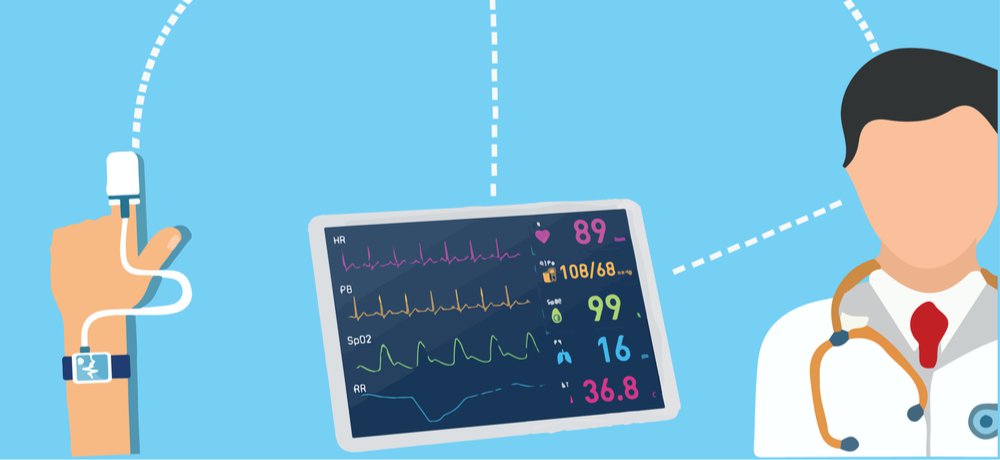
Benefits of RPM:
- Improves clinical decision-making based on data
- Assists patients in improving self-management and adherence to care plans.
- Reduced healthcare costs for payers and providers
- Increases net patient revenue, and so on.
2. EHR, HMS, and PHR software
Electronic Health Record (EHR), Hospital Management System (HMS), and Personal Health Record (PHR) software are valuable tools in the healthcare industry, each serving different purposes and offering various benefits. Let’s explore them in more detail:
- Electronic Health Record (EHR) Software:
EHR Software: EHR software is intended to digitize and streamline patient health information inside a healthcare company. It keeps a complete digital record of a patient’s medical history, diagnosis, prescriptions, lab results, and other pertinent information. The following are some of the advantages of EHR software:
- Enhanced data accessibility
- Improved patient safety
- Seamless communication and care coordination
- Data analytics and population health management
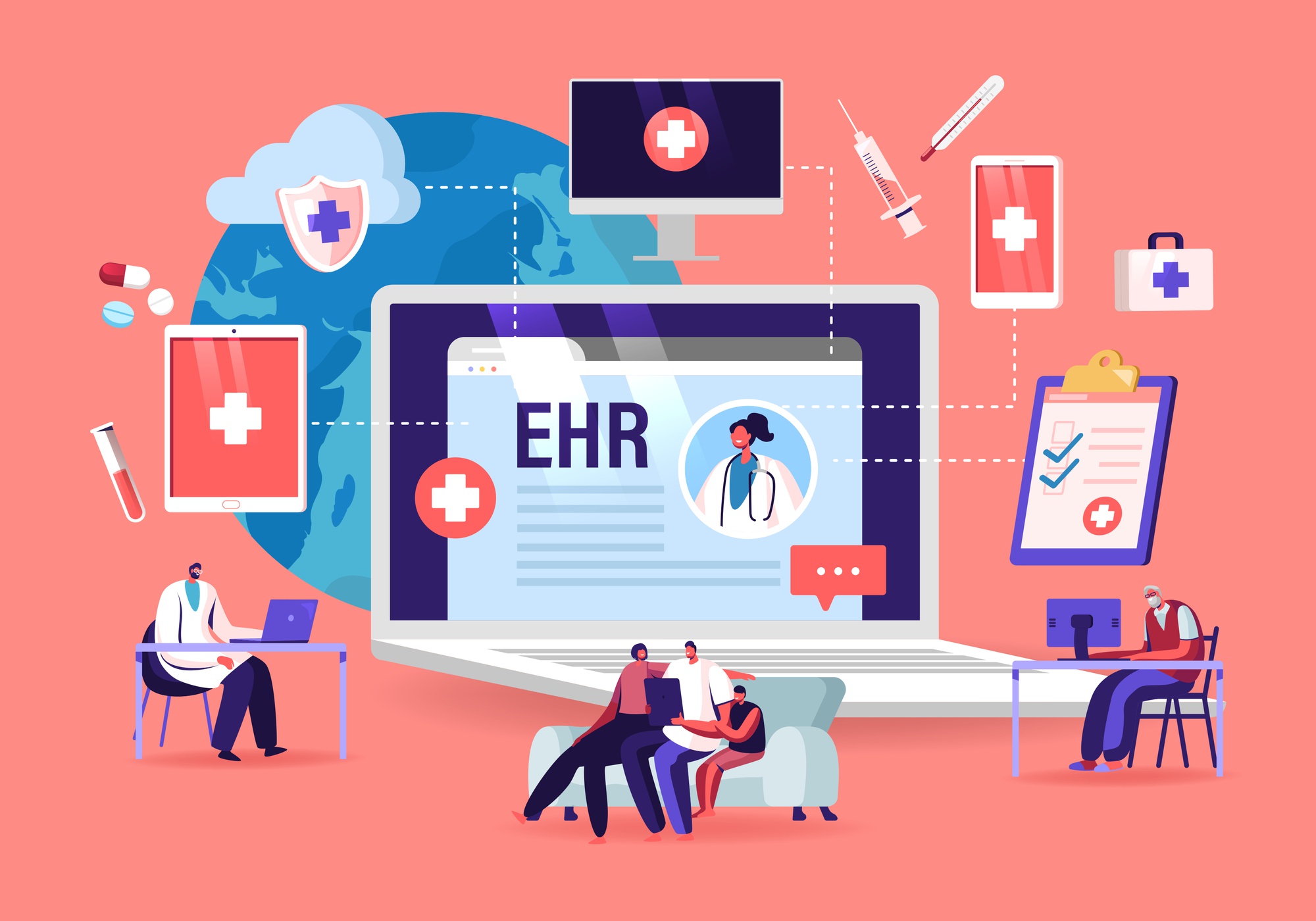
2. Hospital Management System (HMS) Software:
The administrative, operational, and financial aspects of healthcare institutions are managed by HMS software. It combines operations such as patient registration, appointment scheduling, invoicing, inventory management, and reporting. The following are some of the advantages of HMS software:
- Operations have been simplified
- Improved patient experience
- Billing accuracy and revenue management
- Inventory management that works
3. Personal Health Record (PHR) Software:
Individuals can use PHR software to safely store and keep their personal health information. It enables patients to access and control their health information, enter their own data, and share it as needed with healthcare practitioners. The following are some of the advantages of PHR software:
- Patient involvement
- Care continuity
- Personalized health information
- Integration of health data
3. Artificial Intelligence in Healthcare: Transforming Diagnostics and Treatment
By improving the capabilities of healthcare professionals, artificial intelligence (AI) has the potential to revolutionize healthcare. Machine learning algorithms can evaluate massive volumes of medical data, allowing for more accurate diagnoses and individualized treatment strategies. AI-powered imaging technologies improve medical picture interpretation, assist in early identification, and increase patient outcomes. Furthermore, natural language processing and chatbots provide efficient and tailored patient involvement, thereby improving the entire treatment experience.
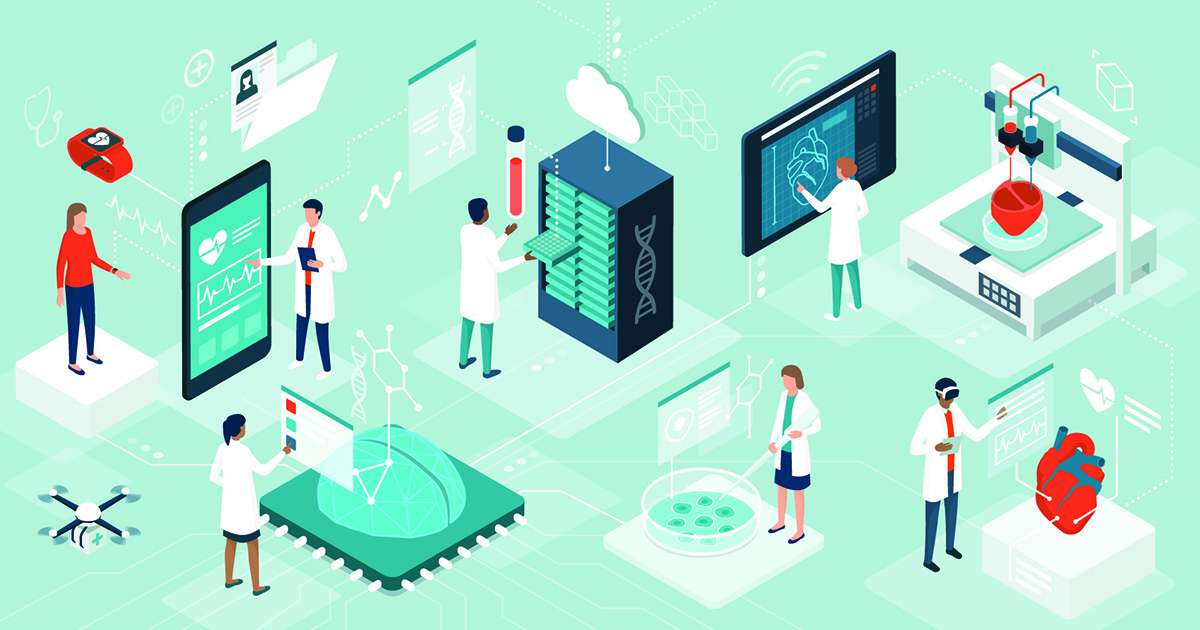
Benefits of AI:
- Accurate and efficient diagnostics
- Individualized treatment plans
- Early intervention using predictive analytics
- Improved medical image analysis
- Administrative tasks have been simplified
- Drug discovery and development
4. Blockchain for Data Security and Interoperability: Building Trust in Healthcare
Data security and interoperability have long been major issues in healthcare. Blockchain technology provides a solution by providing a decentralized and secure platform for administering EHRs and protecting patient data. Blockchain guarantees the immutability and integrity of medical records, allowing for secure data sharing and increasing confidence among healthcare stakeholders. Patients have more ownership over their health information thanks to blockchain, and healthcare professionals can seamlessly exchange data for better care coordination.

Benefits of Blockchain Technology:
- Patient control and data ownership
- Interoperability has improved.
- Data sharing and consent management have been simplified
- Effective claims processing and detection of fraud
- Research and clinical trials
5. Healthcare Mobile Apps: Empowering Patients and Caregivers
Mobile applications are becoming more common in healthcare, allowing patients and caregivers to take charge of their health and well-being. Medication reminders, symptom tracking, appointment scheduling, and access to personal health records are among the functions available in these apps. They promote patient engagement, self-management, and vital health insights. Remote monitoring and communication between patients and healthcare workers is also possible using mobile apps, which improves care coordination and patient satisfaction.
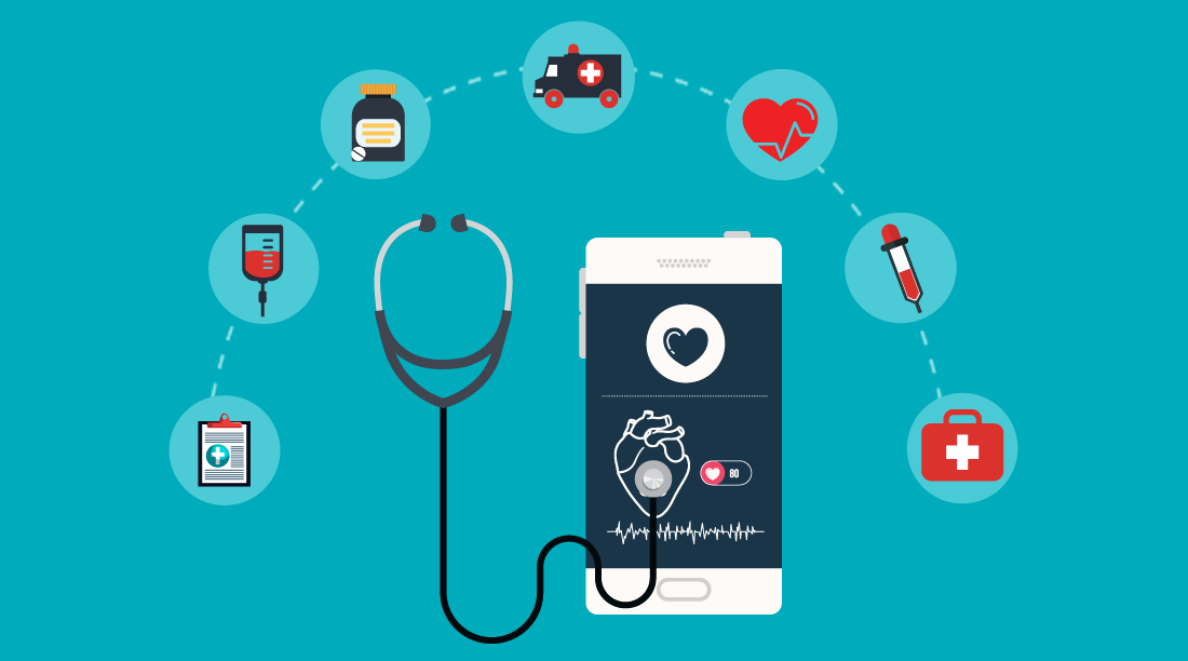
Benefits of healthcare mobile apps:
- Improved healthcare access
- Educating patients on self-care
- Improvements in communication and care coordination
- Patient engagement and education have increased
- Appointment scheduling that works
- Access to personal health records is secure
- Telehealth, health, and wellness Tracking and remote monitoring
6. Data Analytics and Predictive Insights: Enhancing Decision-Making in Healthcare
By harnessing enormous volumes of patient data to enable informed decision-making, data analytics and predictive insights are redefining healthcare. Healthcare firms may extract useful insights, spot patterns, and predict disease outbreaks by utilizing sophisticated analytics approaches. These findings can be used to improve community health management, resource allocation, and early intervention measures. Data-driven decision-making allows healthcare practitioners to provide more tailored and efficient care, resulting in better patient outcomes.
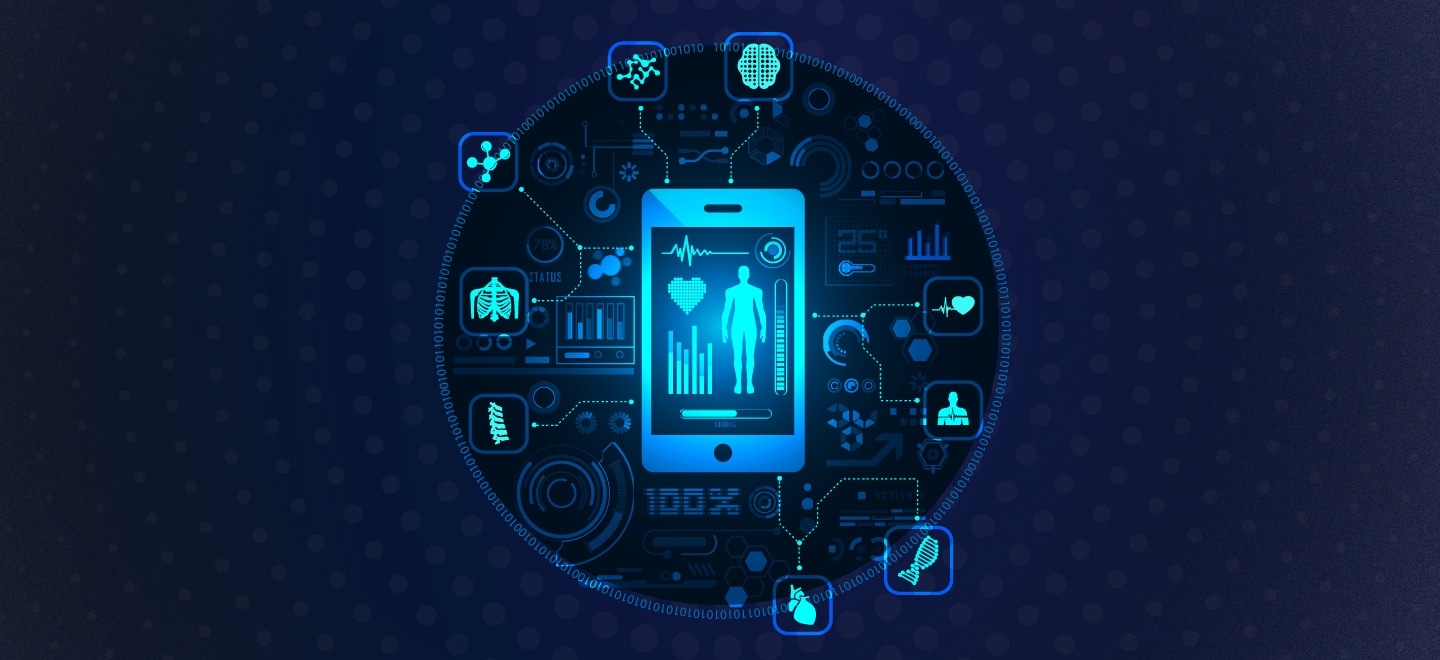
Benefits of Data Analytics and Predictive Insights in Healthcare:
- Better patient outcomes
- Improvements in population health management
- Efficient resource allocation
- Early disease detection and prevention
- Real-Time Decision Support
- Quality and process improvement
- Research and Development:
Conclusion:
Healthcare software development is at the forefront of an industry-wide shift. Telehealth, artificial intelligence, blockchain, mobile apps, and data analytics are transforming healthcare delivery, enhancing patient care, and increasing operational efficiency. By embracing these popular practices, healthcare firms may stay ahead of the curve, improve patient happiness, and open up new revenue prospects. The capacity of software development to change the sector and pave the road for a healthier tomorrow is driving the bright future of healthcare.
Table of contents
GET FREE Estimation of your project
Get rid of doubts and leave it for us! Share your idea and get a professional consultation and estimation of your project for FREE!
contact us